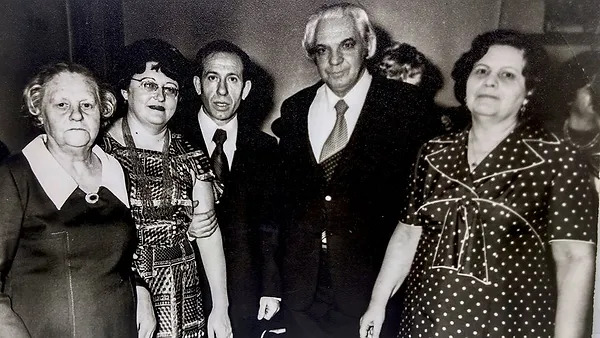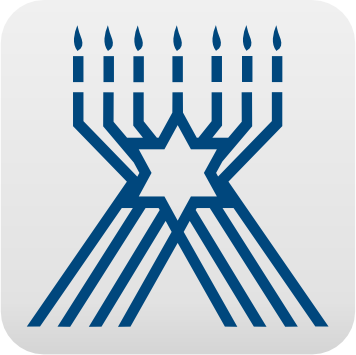Автор: Вячеслав Краснер

Был июль 1941 года. Линия фронта быстро приближалась к Тирасполю. Евреи покидали город кто, как мог. Моя бабушка, Евгения Абрамовна Рашкован (Буйко), её дети — двенадцатилетний Шура и трёхлетняя Анечка, её сестра Анна Буйко и её мама Лея выехали из города, наняв повозку, запряжённую одной лошадью. Их путь пролегал через Одесскую область в сторону РСФСР.
Несколько дней длилось путешествие и вот, наконец, они добрались до крупной железнодорожной станции. Большая вокзальная площадь была забита еврейскими семьями, ожидающими возможности сесть в эшелон и спастись от стремительно наступающих гитлеровцев. Вагоны стояли на путях, а паровоза к ним не было и никто не знал — будет ли он вообще.
Прошли долгие часы ожидания и неизвестности. Плакали дети, нервничали взрослые, волны страха обволакивали вокзал. Звуки артиллерийской канонады стали отчётливо слышны, очевидно было, что очень скоро фашисты захватят город.
(Рассказала Анна, сестра Евгении).
И тогда Евгения, взяв на руки дочку, вместе с сестрой Аней пошла к начальнику вокзала. Войдя в его кабинет, они увидели упитанного здорового дядьку, сидевшего за большим столом. Его равнодушные чиновничьи глаза не сулили ничего хорошего.
«Нет паровоза и не будет!» — сказал он.
«Есть несколько причин, по которым меня и мою семью расстреляют»- сказала ему Евгения: «Мы — евреи, мой муж — коммунист и он на фронте (дед Рувин ушёл воевать 23 июня), попробуйте понять и тех людей на вокзале!» Начальник вокзала был непреклонен. «Нет паровоза»- повторил он.
И вдруг маленькая еврейская женщина с девочкой на руках превратилась в женщину-воина! На столе у чиновника стояла массивная чернильница. Спокойным голосом Евгения сказала, что сейчас этой чернильницей она разобьёт голову этому человеку. «Тебя посадят»- усмехнулся он. Всё произошло мгновенно. Раз! и тяжёлый прибор полетел в голову чинуше. Тому очень повезло — сантиметров десять и он стал бы трупом. Чернильница разлетелась на кусочки у него за плечом, он был с ног до головы в чернилах, его трясло от страха. «Тю, какая скаженная»! — прокричал он, заикаясь. «Будет вам паровоз, только убирайтесь отсюда побыстрее»!
Через примерно час вагоны-теплушки открыли и люди заполнили их до отказа. Подали паровоз и сотни еврейских семей были спасены. Несколько часов спустя станция была занята гитлеровцами. В одном вагоне с Евгенией ехала семья из Тирасполя, они сказали, что видели среди отступающих солдат её мужа и что он искал её и детей. Это был последний раз, когда она что-то узнала о Рувине.
После долгих мытарств, еврейские семьи высадились в городе Чкалове(Оренбург). Их разместили в школе, каждой семье выделили кусочек жизненного пространства в спортзале. Так началась их жизнь в эвакуации. Евгения зарабатывала что-то, убирая в школе, Анна пошла работать на военный завод.
Есть было практически нечего, дети голодали. Исаак Нахт, польский еврей — офицер, попал под раздел Польши и был отправлен в Чкалов, в трудовой лагерь. В Польше он закончил коммерческий колледж и так как военный завод увеличился в разы, а бухгалтера не было, Исаак стал работать в бухгалтерии. Там он познакомился с сестрой Евгении Анной и между ними возникло чувство любви. Исаак помог Евгении устроиться станочницей и она стала получать трудовую карточку.
Недалеко от завода была расположена маленькая деревенька Бёрды,в которой когда-то жил Пушкин, собирая материалы для «Капитанской дочки». Там же когда-то был штаб Емельяна Пугачёва. Евгения сняла комнату в деревне, Анечку отдала в детсад, а двенадцатилетнего Шуру, как взрослого, власти обязали работать на заводе за станком полную смену.
Мальчик падал от слабости, убегал, его ловили и опять ставили за станок. Завод производил баки для танкового топлива. В цехах работали военнопленные, которых не кормили вообще, как они добывали себе еду — никто не знал, но умирали они часто. Это были мадьяры, воевавшие в Вермахте. Евгения познакомилась с одним из них, работая рядом и подкармливала его из своего скудного рабочего пайка. Взамен он каждый день в конце работы сбивал из досок санки (якобы для Анечки), а Евгения топила ими печку, потому что холода были дикие, а у малышки не было тёплой обуви и одежды. Пленный этот выжил, уехал домой в Венгрию и многие годы у нас в семье был его подарок — алюминевый солдатский котелок. А так как Шура не доставал до станка ростом, этот человек сделал для него деревянную скамеечку и тот смог стоять на ней.
Позже Анечка, ставшая моей мамой, вспоминала постоянное чувство голода и как она забегала в избу, где они снимали комнату, крича:»Хочу кушать»! — а хозяева выбрасывали её на улицу, как котёнка. Худо-бедно, но так они прожили три года.
Однажды они проснулись от жуткого звука. Выглянув в окно, Евгения увидела, что по улице с диким рёвом несутся потоки воды, которая очень быстро поднималась. Мгновенно собрав детей, она вместе с ними через чердак выбралась на крышу. Моя мама запомнила на всю жизнь эту огромную массу чёрной воды, которая колыхалась прямо у их ног. Непроницаемый туман окутал всё. Надежды на спасение не оставалось.
И вдруг — этот голос, голос её сестры Анны:» Женя, Женя!!» — возник из ниоткуда. «Мы здесь!» — закричала Евгения и дети. Оказалось, что Аня упросила своего знакомого, у которого была лодка, отправиться на поиски сестры и её детей. Через несколько минут они были в лодке и это можно было назвать чудесным спасением, потому что в тумане не было видно ничего и Анна с другом плыли наугад, выкрикивая имя сестры.
Вот так еврейские женщины и дети выживали и выжили. В 1944 году Тирасполь был освобождён и они вернулись в родной город. Анна поженилась с Исааком и переехала в Кишинёв. Их дочка Лариса де-юре моя тётя, а де-факто старшая сестра. Евгения стала работать на Винзаводе и воспитывать детей. Замуж она больше не вышла. У Шурика и у Анечки родились по два сына — Лёня и Рома Рашкованы, Слава и Саша Краснеры, у их детей родились свои дети. Евгения, Анна, Исаак и Шура уже не с нами, но мы их помним всегда.
